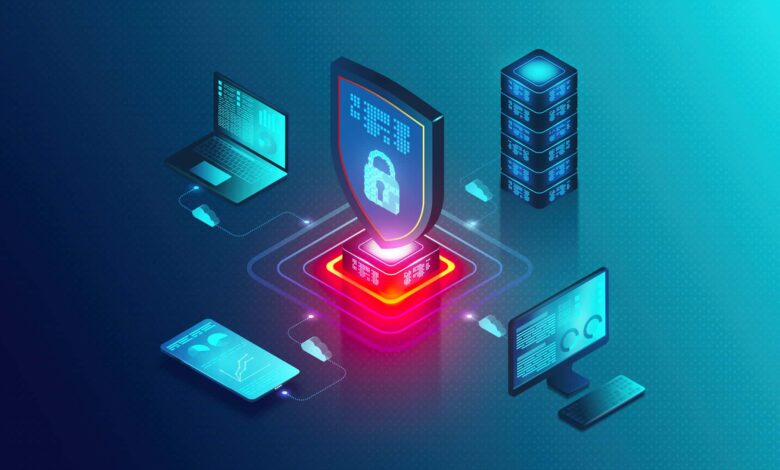How to get into cybersecurity: A guide for career building

Are you interested in a career that is both challenging and rewarding? Look no further than cybersecurity. With the increasing importance of technology in our daily lives, the demand for cybersecurity professionals has skyrocketed. But breaking into this field can be daunting, especially if you have little to no experience. That’s where we come in – this guide will provide practical tips and resources on how to get started on your journey towards building a successful career in cybersecurity. So grab a cup of coffee (or tea, or whatever fuels your brain), sit back, and let’s dive into the world of cybersecurity!
What is cybersecurity?
Cybersecurity is the practice of protecting computer networks and other digital systems from unauthorized access, use, or disclosure. In order to be a successful cybersecurity professional, you must have a strong foundation in mathematics and computer science as well as experience working with code. There are many different career paths available in cybersecurity, including research and development, software engineering, information technology management, network administration, and cyber security consulting.
The history of cybersecurity
Cybersecurity is one of the fastest growing industries in the world, with a projected growth rate of 18.4% between 2016 and 2026. There are many ways to get into cybersecurity, whether you want to work in a corporate setting or start your own business. This article will guide you through the process of getting started in cybersecurity and what qualifications you need to pursue a career in this field.
To be successful in cybersecurity, you need an understanding of technology and how it works. You should also have strong analytical skills, as well as experience working with computers and networks. Some common certifications for cybersecurity professionals include:
• CCNA: This certification is aimed at networking experts and teaches how to configure, operate, and troubleshoot networked devices such as routers and switches.
• CISSP: The CISSP certification is aimed at protecting information systems from cyber attacks. It covers topics such as authentication and access control, security engineering, risk management, incident response planning, software development security practices, and more.
• MCSA: The MCSA certification is targeted at IT professionals who want to learn about security features in Windows operating systems (OS) including Windows 10/8/7/Vista/XP; storage management; authentication technologies; application security; vulnerability assessment; malware analysis; forensics examination using OS tools; penetration testing methodsologies using OS utilities; Advanced Encryption Standard (AES); Internet Key Exchange Protocol version 2 (IKEv2
The different types of cybersecurity
Cybersecurity is a growing field that offers many opportunities for career growth. There are three main types of cybersecurity: information security, cyber defense, and cyber intelligence.
Information security is the protection of data from unauthorized access, use, or disclosure. Cyberdefense protects systems from attacks by hackers. Cyberintelligence focuses on gaining insights into the behavior of adversaries to help protect systems.
There are a variety of ways to get into cybersecurity. Some people start out as computer technicians or system administrators. Others become information security officers or network engineers. Still others become software developers or researchers in the field. The most important thing is to have an interest in cybersecurity and learn about the various positions available.
What are the benefits of a cybersecurity career?
A career in cybersecurity can provide a number of benefits, including:
1. Secure your future: A career in cybersecurity can provide you with stability and financial security. With salaries ranging from $60,000 to $130,000, a cybersecurity career can provide you with a good income.
2. Flexible work schedule: A career in cybersecurity often offers flexible work hours and opportunities for travel. This means that you can usually set your own schedule and work when it’s convenient for you.
3. Enhancing your skills: A career in cybersecurity can help you develop critical problem-solving skills and learn new technologies. This could give you an edge when searching for employment or applying for scholarships or fellowships later on in your career.
4. Developing relationships: A career in cybersecurity often requires working closely with others, which can lead to developing valuable relationships and networking opportunities. This could open up new doors for future job opportunities or collaborations on projects.
How to get started in a cybersecurity career
Looking to get into the cybersecurity field? Here are some tips to get started:
1. Get your degree in cybersecurity. A degree will give you more experience and knowledge than a diploma or certificate, and it will also give you the credibility employers look for when interviewing candidates.
2. Check out online courses offered by universities or online providers. These courses can provide valuable training in cybersecurity tools and techniques, as well as help build your resume.
3. Network with others in the cybersecurity field. Attend trade shows, conferences, and meetups related to the field to make connections with potential employers and fellow professionals.
4. Volunteer with a nonprofit or charity that specializes in cyber security. This will give you experience working with different types of networks and software, as well as learn about cyber security practices from the pros. You can try internship in cybersecurity both onboard or remotely. For instance, there are plenty of remote cyber security intern jobs on Jooble you can start with to get experience for your future successful career.
Conclusion
If you are interested in a career in cybersecurity, this guide will help you build the necessary skills. By following the advice and tips included, you can gain experience in the field and open up opportunities for yourself. Armed with knowledge and essential skills, you can begin your journey to a successful career in cybersecurity.



